
Brian's Run Pod
Welcome to Brian's Run Pod, the podcast where we lace up our running shoes and explore the exhilarating world of running. Whether you're a seasoned marathoner, a casual jogger, or just thinking about taking your first stride, this podcast is your ultimate companion on your running journey.
Join us as we dive deep into the sport of running, covering everything from training tips and race strategies to personal stories and inspiring interviews with runners from all walks of life. Whether you're looking to improve your race times, stay motivated, or simply enjoy the therapeutic rhythm of running, Brian's Run Pod has something for every runner.
Brian's Run Pod
Running Without Limits: TJ Dailey Part two
Use Left/Right to seek, Home/End to jump to start or end. Hold shift to jump forward or backward.
In part two of my chat with TJ Dailey he shares his remarkable journey from seeking validation through running to becoming an accomplished ultramarathoner, offering insights on perseverance, community, and adapting to challenges.
• Started ultra running after completing a marathon with his brother, progressing quickly from a 50K to a 100-miler in less than a year
• Discovered that ultra distances provide multiple "second winds" if you push through initial walls
• Led a team to victory in the Great American 5000 virtual race during the pandemic, with 24 people running all-out for an hour daily
• Currently adapting training after being diagnosed with rheumatoid arthritis
• Draws inspiration from running legends Roger Bannister and Steve Prefontaine
• Recommends beginners find what specifically excites them about running and start with small, manageable efforts
• Suggests configuring running to fit your lifestyle rather than forcing yourself into a rigid program
• Using technology like Shokz headphones and stride pods to enhance the running experience
• Transitioning focus from personal records to producing events and supporting other athletes
Check out mesh-tc.com for information on races, documentaries, and more resources from TJ and his running community.
Shokz Headphones
Brian's Run Pod has become interactive with the audience. If you look at the top of the Episode description tap on "Send us a Text Message". You can tell me what you think of the episode or alternatively what you would like covered. If your lucky I might even read them out on the podcast.
Instagram
So you're thinking about running, but not sure how to take the first step. My name is Brian Patterson and I'm here to help. Welcome to Brian's Rompod. Welcome back to brian's rom pod, and it's me, your host brian patterson to talk about all things running.
Speaker 1:Now. This episode is part two of my chat with t Daly, now if you haven't heard part one, then please do go back to last week's episode so you can find that in the catalogue. Now I don't know if you have noticed that I have been interviewing quite a few runners from Indiana, so I'd just like to give a big shout out to Christy for putting me in touch with them, and so will be interviewing in christy in a couple of weeks as of the time of this recording. So anyway, let's get into this episode, and I started off by asking him how you got into running ultras. What gave you the impetus to to doing old ultras?
Speaker 3:this was kind of a a brotherly thing. Yeah, I have two younger brothers. Uh, both of those brothers had moments in time where my father gave them a lot of praise and attention. They were really good. So my little brother was a basketball player and a soccer player very, very good and then my youngest brother was a golfer and and that's my dad's school and so growing up they always got this attention and I was an athlete to a point right, with a little running and then some football, but never kind of got that admiration in the world.
Speaker 3:And so, after my brother and I ran the marathon in 2012, I'm like, where can I take this august? So it was very selfish at this point in my life. I was, you know, in my mid-20s or, but uh, or early, early 30s. Anyways, I'm like, well, let's try an ultra. And they're, that local marathon that I ran with him is in november and there happened to be an ultra in december and it's the typical. Well, it's only five more miles from okay. Um, we did that and I'm like at this time I read born to run.
Speaker 3:Right, this is right around oh yeah, I think that book was popularized a couple years earlier, but right in that time frame and I'm like 100 miles and so, um, then I ran another 50 february and I ran another 50 in march. I'm okay at this. Um, I ran a 50 miler in April. I won my age group, I'm like I broke eight hours and I'm like, oh well, if I can run 50 miles, I can run 100 miles. And so that August I went from my first marathon back, so my second marathon overall in November, to my first 100 miler in August of the next year. And so it started as this, like seeking attention and seeking approval, and about halfway through that journey turned into wow, I'm really seeing some performance gains, I'm really good at this, and it became more intrinsic at that time and Did it not hurt?
Speaker 1:Oh, oh, my goodness, were you just you kind of thrived on the pain.
Speaker 3:Yeah, you know, there's this mindset that when you cross the starting line there is no other option. You either break something or I remember I think the most important lesson I took from that first hundred is that in races that long, you're going to get that second win, that third win, that fourth win. We're at a marathon. If you get a wall at 20, you don't have time to bring it back right, you're just going to suffer for the last six miles. It is what it is. But in races like that um, at that particular race I got sick at 50 miles. I was in the bushes behind one of the aid stations and I laid down for 30 minutes but got back up, got through it, got a second wind shortly thereafter. It was. But I do remember that pain was so new, pushing for that long, you know, just just under 20 hours. Uh, I remember going to the airport and asking for a wheelchair assistance because I never experienced anything like that in the past.
Speaker 1:That since change, that perspective has changed and obviously you learned something new each time you did it. So there, you could strategize about it.
Speaker 3:Yeah getting that fueling right. You know, understanding what a good pace is, what might feel sustainable is not necessarily sustainable for 100 miles. So yeah, a lot of in, a lot of practice and quick succession could re-implement some of those learnings right away and help reinforce so you've done um the, the ultras.
Speaker 1:But I know, going back on your, the, the club's achievements, you you did the inaugural great american 5000 virtual race. What was? Can you explain a little bit about that?
Speaker 3:yeah, that was. That was, uh, about a perfect timing. So this was right in the first summer, it's a 2020. I think call it July and nobody had anything to do. Yeah Right, we're all just sitting at home. Yeah.
Speaker 3:Um, and so this company uh, there's a lot of races on the East coast has this bright idea let's create this race, and what we're going to do is we're going to put this virtual map online. Yeah, we're going to create this system so as so get a team of 24. That was the number. 12 or 24, I can't, but anyways, every day, each member goes in and uploads the distance they ran into the system and then, as your team uploads their distance, moves your marker across the country oh, I see okay, yeah, that first year, and rules changed subsequently, but the first year they limited it to an hour per person per day.
Speaker 3:we did have 24, now that I remember right. Yeah, wouldn't, as a team, collectively run more than 24 hours in a day, um, which, as you can imagine and just think about this, you only have an hour to run. Well then, the goal is to run as hard as you can for that hour, and it took us, I think, 15 days. So imagine waking up every morning for an hour and running full blown tempo or faster, for two straight weeks.
Speaker 3:Um, I spent some time in the hospital, uh, towards the end because I was having major like gi issue, because I mean, you just you're not used to that and it's extremely hot here in the summers, right?
Speaker 3:so you're waking up at five and running as hard as you can, uh, but we ended up winning that race by a pretty significant margin. We found some really competitive people and again, it just speaks to how unique it is that somehow these people connected to us are all willing to lay it on the line when it comes to the team and sacrificing To get 24 people to do that. I mean, as you know, getting 24 people out do that. I mean, as you know, getting 24 people out for a casual sunday run is difficult. Yeah, getting 24 people to run as hard as they possibly can for an hour a day for two weeks, um, was significantly more difficult, but it was a fantastic accomplishment. And then we took a year off and in that year there were, goodness, a couple thousand people to protect because there was nothing else to. Yeah, there were, goodness, a couple thousand people that participated because there was nothing else to do.
Speaker 1:There were 250 teams of 24. Do you think the fact that it was smack bang in the middle of COVID that to get the numbers and people were motivated they needed to do something? It was kind of easy to get people energized about that.
Speaker 3:Yeah, it really was, and it's been unfortunate to see in the subsequent years. It's kind of easy to get people you know energized about that. Yeah, it really was, and it's been unfortunate to see. In the subsequent years it's kind of fallen off because you know people are back to racing, raced it again a couple of years later and they took the time limit off. You could run as much as you wanted each day.
Speaker 1:Oh, right, okay.
Speaker 3:And so it became an ultra at that point. For the first day, our whole team of 24 went out and went for marathon and you know. So it was a definitely a different experience, but, um, that was one of the coolest.
Speaker 1:Things relates to the community coming together to accomplish something so about your sort of um personal records, because I know you've done a 248 for the marathon, is that your best time?
Speaker 3:that is my best time. I feel like I was in better shape later last year, but injury kind of came into play. Um, yes, 248 was my best in january of 20 and is do you have a?
Speaker 1:whenever you're approaching, let's say, a marathon, do you kind of have a particular regime? You know regime, uh, training regime, so as that you sort of peak at the right time? Do you kind of like, oh, eight, twelve weeks, you know your training plan? I mean, how does that work?
Speaker 3:yeah, I would say it's changed, but initially it was like a 16-week plan and then, as I got a bit a bigger base, yeah, the 12-week plan into play and going through I have a pretty standard, like you said a couple of workouts a week, very specific workouts, and they kind of trend in a direction in terms of length or difficulty. We're always modifying things. The last build, so Boston, the Boston Marathon, is in and I'll be running that again. Um, but I got diagnosed rheumatoid arthritis all right and uh.
Speaker 3:That was followed with within the same week uh, stress reaction in my right foot and then later a strained calf. I've never strained my calf and I've run almost 30,000, and so this has been an interesting build. We've had to implement some heat training and some other things that we hadn't really explored in the past um I will not be running a 248 at boston but, you know, hope sort of to go run the qualifying time which provide to run a 305 or something.
Speaker 1:Okay, all right. Um, I mean, how does, because you've run a lot, like you said.
Speaker 3:So how does injury affect you on a mental, on a mental standpoint standpoint, you know it's been, it was, it was always from a mental standpoint, it was always another puzzle to solve. You know, I'd been lucky up until really cheap, right, I'd had maybe two significant injuries where I'd have to take more than three or four weeks off. So two significant injuries in 15 or 14 years is, I would say, fairly lucky. And then other issues that we have, those physios that I referred to earlier that would help you through. Okay, you know this is happening. I'm getting this pain.
Speaker 3:Okay, biomechanically, your glutes aren't firing or your hips aren't yeah we need to work on this from a foot mobility perspective, and normally those were fun puzzles to solve. All right, let's get through, let's figure this out, and then let's get down the path. This last year it's really gotten a little overwhelming and I've had some trouble. You know, when you get a diagnosis like the ring arthritis, there's nothing to do about it. Right, movement is good for you. But at the same time, I have really bad days sometimes where, if for me, it presents mostly in my feet, and so there are certain things that I can't do or don't, or I shouldn't say can do, but it hurts you know, and so dealing with, at the peak of these issues, doing 90 minutes of physical therapy every morning and having to walk for 30 minutes to get to the point where you can run you do.
Speaker 3:You start to question is it worth it? But things do ebb and flow, things are getting better and I'm learning slowly out of those issues yeah just take what it gives yeah, interesting.
Speaker 1:I mean, as you're getting older, um, do you think that certain aspects of your training, of training that you know, you have to tweak and change? I mean, I'm thinking you know, for instance, you know, well, you know, I'm 60. Strength training because obviously you know I'm not the person I was 20 years ago, or you know when I was doing, you know a lot more running, or even you know four or five years ago, but you kind of have to adapt to the person you are.
Speaker 3:And you know I mean my goal is, I think, is to be where you are be able to. You know, be able to. So it's hard because I think, on one hand, we're finally seeing Masters athletes fully make it. Records fall, massive records are falling left and right because people are realizing there is a little bit more out there. But to your point, the balance that that requires.
Speaker 3:You know I can't spend three hours a day Because, you're right, there was a point in time where I was integrating I need to get back to it more lifting strength training into my well add another 45 minutes a day on top of 90 minutes on top 30 minutes of walking on top of 90 minutes of a workout and, all of a sudden, like you're in a situation where you're waking up at four in the morning or you're putting your professional career in jeopardy or you're taking time away from your kids and like, I think, at the end of the day, what, what, what is a 245 man like?
Speaker 3:who even knows what that means? You know, except three great milestone right breaking 20 in a 5k or breaking you know, 90 minutes and a half marathon, like those are. But like you get to some of these, like I'm never gonna break 55k and who was who's who's that even for? At this point, you know I've I mean I bested my high school 5K PR by six minutes. Like you know, in my 40s there's nothing left really there. It's just. I think at some point for me it's probably too much of my identity tied up in it and I'm being a little selfish. So, again, my goal is to start to, I think, maybe worry more about the longevity of my running and then, like you said, overall health, making sure I'm lifting and doing other things that are going to keep me fit and able to do things later.
Speaker 1:I was going to ask you later as to where you're sporting one of your sporting icons, but I can see over your left shoulder there's a picture of Roger Bannister, so I wonder if he is. Well, you just said that c profan prefontaine is was one of you, so I would say those two.
Speaker 3:Um, I had my daughter like I. I actually tear up when I watch bannister oh really oh yeah, but I watched.
Speaker 3:You know, I've read his book and I watched that replay of because it's such a monumental moment in sports. I mean people thinking that you couldn't physiologically do that exactly, die before they, and for him to do it and then do it the way he did it. So I, I um, had my daughter, who's 11 and I'm a runner. That's really cool achievements herself, um, watch that and just you know she doesn't quite realize it yet, but but what he did and like the track that he ran it on and the shoes that they ran it in and his training during lunch while he's trying to become you know a doctor and just the way it all came together, yeah because I uh long.
Speaker 1:When I left school, I worked in the same hospital as he did um I was doing administration and I think I may may have seen him somewhere from afar or something, but um, yeah, but yeah, I think I do remember seeing him because he was a um, a neurologist I think, uh, a consultant, so, but I was, I was like you know, 18, 19 or something like that very, very young, so it's still, yeah, I know it's still kind of, but uh, it was um, but, like you said, um, such an iconic individual and the story is just amazing and you know, and like you said it was, they just said it that it couldn't be done, sort of thing. Um, and also, I think the other thing about the story is that he, the way they approached it, was way ahead of their time. I mean, you talk about runners, sort of you know, being pacemakers. I mean, you had, I don't know what, three of the best you know, you know two of the rest pacemakers there at the time, sort of thing.
Speaker 3:Yeah, no, it was good to know, it just caught my eye just there he's just such a, and the funny thing is that example is so many other facets like so many. The four mile moment, there's so many other things. When people talk about breaking barriers and then, once the barrier is broken, this waterfall effect happens, we're all, and that's the, that is the quintessential, you know? Um, now we have 20 kids a year in high school. High school, like, there's a kid who was 15 who broke four in the mile, a couple like, yeah, you know, you're right, the way they did it with the, the three cases and how they kind of had, I mean it was, it was spectacular.
Speaker 1:I could watch that over and over, yeah I mean, the other guy who comes to mind is um jim ryan, who is very talented guy, you know.
Speaker 3:So very young and very quick to do what he did in high school yeah, yeah and again you think about the technology back then yeah, exactly they were right on the shoes. They were running and they didn't have dragonflies or night victories or anything.
Speaker 3:Advanced materials in the tracks, like all the carbon, carbon, whatever, yeah yeah, yeah, those two, um, from that point in time, you know, like you said, three is kind of that. One for me is a kind of a a razor's edge, because I and I guess probably more of a razor's as it, as it relates to my kids, because, like I said earlier, with my daughter, community is what's is the big thing. Now I want her to go have fun with her friends and running is kind of secondary and she's she's seldom that, but like, let's not too intense. Uh, then, at the same time, you know, ste Steve is like killer and it was I'm running from the front. It's quotes Like if you're going to beat me, you're going to have to believe do it and all of those types of things.
Speaker 1:I definitely want her to embody some of that at some point, but you know, I don't know if she has the filter, yet that, like a grown adult, has to look at that and implement it when necessary, as opposed to making that a life mantra and always being that. Just to bring it back to the training I mean for someone who's starting out, because obviously these probably the people who are listening to this what, what advice would you give someone who is looking to start out and and and to get into the sport?
Speaker 3:I would say the thing that's been the greatest is you can find something to an AI platform and ask it for a beginning. Yeah.
Speaker 3:For me, I think the most important thing is doing some initial exploration and finding something that is exciting. Doing some initial exploration and finding something that so there's. As you know very well, there are different levels or tiers of pain, depending on what it is. If you're somebody who has figured out how to embrace it, I get like the 800 me. Now, I'm not saying most people later in life don't want to go run, track, race, but my point is there's a different level of uh, suffering that you can experience. Right experience running a fast 5k versus running a slow marathon. So like, are you interested in running shorter, faster races, and is speed something you even care about?
Speaker 3:There's so many different things. There's runs with your dog. You could go do 5ks with your dog if that's something you enjoy. Or spending time with your pet if you want to go out and do that. Some of the things we've done. There's an app called City Strides. I think it works globally. I know it works globally actually, when you can run every road in the area you live, and so we have a town called Carmel close to here, and there's 3000 roads and a couple of years ago we ran all 3000.
Speaker 1:Oh right, oh, I see Okay.
Speaker 3:You know, exploring. You're exploring somewhere that you may have lived your whole life in a way you've never done, and there's no requirement as to how many miles you're doing a day. You want to go run a mile somewhere, or two miles somewhere you've never run before. Close to you, cool, and it's going to track it for you on a map and show you what you did and haven't. Um, do you like to spend time in nature? Well, there's the ultra world for that. Or you can run a backyard ultra right, that's in nature, but it's only 4.167 miles at a time. So I think for me it would be spend some time looking at the different options, because it doesn't have to be about breaking for in a marathon or winning a local 5k or or whatever. Just find what excites you and then try to find a community, and it's not always available, but if you do it solo long enough, you'll find you'll meet somebody on a trail or you'll start to. You know, I guess one of the benefits of technology is enough, you'll find you'll meet somebody on a trail or you'll start to. You know, I guess one of the benefits of technology, right, you'll start to with like interest on different platforms. Yeah, plug in that way.
Speaker 3:But that would be my biggest requirement, because I think anymore with the actual tactical execution side of training, it's pretty, you know, pretty wildly available, right, go, walk, run, yeah, go out, and. And the other thing I guess I would say too, um, for ranting and rambling a little bit, is that right, crank it up into small digestible chunks, set your shoes by the door, stare at your shoes for an hour, right, and then so you know, there, there is no. Just because somebody says, oh yeah, here's the plan, you have to run three miles a day, every other day for seven days, and that's where you need to start at it. You just just bite off what you can chew and do what you enjoy doing, and then you know, continue to open up to all of these endless possibilities are you kind of of the kind of philosophy is do a certain time.
Speaker 1:You know, let's say do right. Okay you, you haven't run before, so do either I don't know, walk, run for six, seven minutes and then just try to increase the time rather than here's the distance you need to be doing.
Speaker 3:It was definitely in the former camp. Like you said, just do what you can do what you can do.
Speaker 3:Like you said, as somebody starting, you have to realize that running takes practice yeah it's, you know, because it's this I always say, because it's a natural human movement people think, oh, I just I know how to run the right way.
Speaker 3:Or, and I think what you find over time is that, first and foremost, as you expose yourself more to different stimulus and different distances and times and training you're going to, your biomechanics are going to shift because your body's going to naturally want to be efficient. So, I think, going out and doing a few minutes at a time, realizing that the only way to run and we see this a lot right, people remember running in second grade, when you're out on the playground and it's tag or chase and you're running as fast as you can, and after you run 100 meters you're breathing, you know or can't breathe, and they think, well, that's what running feels like and that's not necessarily pace. You know 12, 13, 14 minute mile and doing it for six or seven minutes, getting your breath back and then doing it again, and so on and so forth. Um, one of the other things that I found that has led to some success in our group is starting a streak, just a mile a day. Carve it up.
Speaker 1:However, you, oh, yeah, yeah, doing a streak yeah and then get consistent with that.
Speaker 3:And then, if you want to extend your streak, we have individuals who their their minimum is 30 minutes a day or 45 minutes a day, but that helps you develop that consistency and do a lot, even if you go walk it, uh, and then.
Speaker 1:So that's another, another good way to kind of build a foundation and have something throwing you back, especially if you're do you think there's any one common thing where where people sort of kind of you know they don't sort of follow through with it, or we kind of?
Speaker 3:yeah, I think, I think the lack of um it again, it's finding kind of the right configuration for you is a lot of times I think people bite off more than they can chew yeah, they do yeah three, four, five mile you whatever the program says they're going to do, and it's so miserable yeah and it doesn't fit their lifestyle.
Speaker 3:You know, the whole premise of this is hearing to every runner. It's like you know you don't. You can configure it any way. I would say configure it any way you can for what works for you. It gets cold here in the winter. I don't like running when it's zero outside and a lot of people don't like running on treadmills. Well, for me.
Speaker 3:I figured out a method with a treadmill that was entertaining. I jumped on the Zwift platform so I've got virtual runs in front of me. Or I used to watch like concerts, right, because a lot of people they're like I don't like to watch TV because I'm trying a little bit too hard and I can't focus on the program that I'm watching. Watch a concert, you're getting to listen to the music you like to listen to and it's mindless.
Speaker 3:Again, you do like the little tweaks and things that you can do to make it digestible for you. So you're not getting up at four in the morning, when it's dark outside, when it's freezing, doing something you don't like. To begin with Versus, oh, maybe I can run it 5.30 or 6, because I'm doing it indoor and I don't have all the other extra things going on. It makes it more digestible and more executable over the long run.
Speaker 3:I find that on the treadmill treadmill, playing with speed makes it more interesting do you do, like the like, every certain amount of distance up a little bit, or how do you?
Speaker 1:yeah. So, yeah, maybe something like uh, I would maybe do a, uh, you know a 1k and I'd gradually increase the speed. You know 0.1 to 1k, and then let's say maybe to I don't know 400 at a certain speed and then bring it down to to walking pace and then or something, and 400 to another thing, um, and it kind of just gives you a little bit of an idea of the kind of a spade you know it could be a. You know you're doing an interval session, um, but it just makes, rather than doing your, I don't know, six, seven, eight k on a treadmill. There's one long run, because then it it becomes a battle, a mind battle, whereas if you're outside and you know you've got trees to look at and like it's a spring now and you know it's, it's a lot more enjoyable.
Speaker 1:You know there's people saying whereas I think if you're just doing a straight run on a treadmill, it it is so hard, really hard, it's tough. Yeah, um, just a few just before we go and really, thank you very much. I've enjoyed it so much. I hope you've enjoyed being on the show. Just a few quick fire questions. Obviously you've answered my first one, which was, you know, a sporting icon? Um, a couple of them there. Are there any pieces of tech that you can't you've got to take with you on your run?
Speaker 3:outside of the obvious, watch yeah, I would say the new shocks open, fit air which are kind of the true wireless. They sit on your ear so you can hear.
Speaker 1:That's a big one, oh yeah yeah, I've heard a lot of those guys yeah yeah, you know.
Speaker 3:So shots open, fit air is a good one. I've also started using I guess I wouldn't call this a must-have, but I use a stride pod which is running power on your foot. Okay, um, that I like because it's it's, it's like cyclist power, right, it's the one metric that, um, this particular device takes into consideration wind, it takes into consideration elevation and things like that. So you know, if you're running a six minute mile, that effort is considerably different up a 6% grade, right and so you can use this power number to kind of adjust your effort so that you stay in the same effort range versus getting all over the place. So I would say those couple of things are the things that I use.
Speaker 1:And um. Do you have a particular favorite running route around your um where you live?
Speaker 3:There's a trail that is half mile from my front door, so I spend a lot of time there and I have four loops. I have my north loop, south loop, east loop and west loop, so those are the four that I use the most often for.
Speaker 1:Now, if there was a marathon? I know you've run quite a few marathons in the us. Now, if there's a marathon anywhere in the world, um where, where would you? Which?
Speaker 3:one. Would you choose only a half marathon anymore, but the great wall of china? Ah, right, okay that would be cool. Um, so I would say that would be my bucket list. I mean, something like. Something like Antarctica sounds cool from a you know, but I think the Great Wall of China for me would be a really awesome experience. I would say that.
Speaker 1:Brilliant, excellent. Thanks very much. So what's the plan goals for TJ going forward before we go.
Speaker 3:Yeah, you know, I think for me I will probably continue to transition to what you and I discussed earlier, with a little less focus on fast running, fast road races, more on producing events, more on the other athletes have on our team. I mean, we have an individual who just ran right, so supporting him his endeavor. You have another master's actually in his second in the master's field in the boston couple of years, so supporting him. Um, helping our coaches like christy and cory grow their businesses and then, you know, continuing to grow our races. We just had, uh, one of our races hit. Um, we have a documentary on it online.
Speaker 1:That just did a hundred thousand oh yeah, I was gonna say yeah the running perimeter. What's that there? Is that the running perimeter? What's that? Is that the running perimeter? That documentary.
Speaker 3:So he we did a documentary on him. He did a race called the Speed Project during his perimeter run, so it was from Los Angeles to Las Vegas.
Speaker 1:Right.
Speaker 3:So he started in Ohio, ran the perimeter of the US to California, stopped, ran to Las Vegas and flew back to California and then finished the perimeter run back to Ohio. So we did a two-hour documentary on the run from LA to Vegas. And then we did another documentary on a race we host, backyard Ultra, called Prairie on Fire. Those are both on the Mesh YouTube channel, but one of them just got over 100,000 views was on the mesh youtube channel but, like um, one of them just got over a hundred thousand people. So, oh, wow, producing more inspirational content like that for the community to digest and expose them to some of the different things and and does that take a lot of organizing.
Speaker 1:You know resources, you know um. I take it that's between you and your brothers, is it?
Speaker 3:they help a little bit.
Speaker 1:Um.
Speaker 3:Christie's a big help. We just we've we've lucked into this amazing community that does it for the passion of it. Okay, you know nobody's out here. You know to make a ton of money off.
Speaker 1:Yeah, sure, okay.
Speaker 3:Let's create these cool experiences, those people, things that are possible yeah that's why we enjoy producing some of these races, because one of them's a 50k and it's a downhill um road 50k, so it's like a logical next step done, a marathon. This is just a little bit further. Try this. Or in the backyard ultra, same thing earlier. Right, well, you can run four miles, well, by eight, or try 12 or whatever you know, divisible by four. You want to try. But that's been the main focus and having people that are passionate about it to help support all the endeavors. There's no way we without a solid team right, excellent.
Speaker 1:Well, uh, I hope you just like to stick around afterwards, but I'd just like to say, you know for now. Thank you very much for coming onto the podcast and, as I usually do with most of my interviews, I usually kind of split them into two, so we get the two bites of the cherry of TJ, sort of thing, and it should be coming in. Yeah, yeah, thank you very much. I just want to say goodbye. Oh yeah, do you have any links that you want to promote or anything like?
Speaker 3:that. Yeah, I mean M-E-S-H-T want to promote or anything like that. Yeah, I mean mesh tccom. That's our website. Yeah, you can visit that. That has all the information on erases. It has links to those documentaries I just talked about great um, that's probably the best place for everything. And then we're working. We just launched the website. Actually, this is the first time I've mentioned it live.
Speaker 3:We launched and launched the new website two days ago oh, brilliant so we're still working on our coaching pages and things like that, but that's the main link okay, thanks very much.
Speaker 1:Okay, and goodbye.
Podcasts we love
Check out these other fine podcasts recommended by us, not an algorithm.
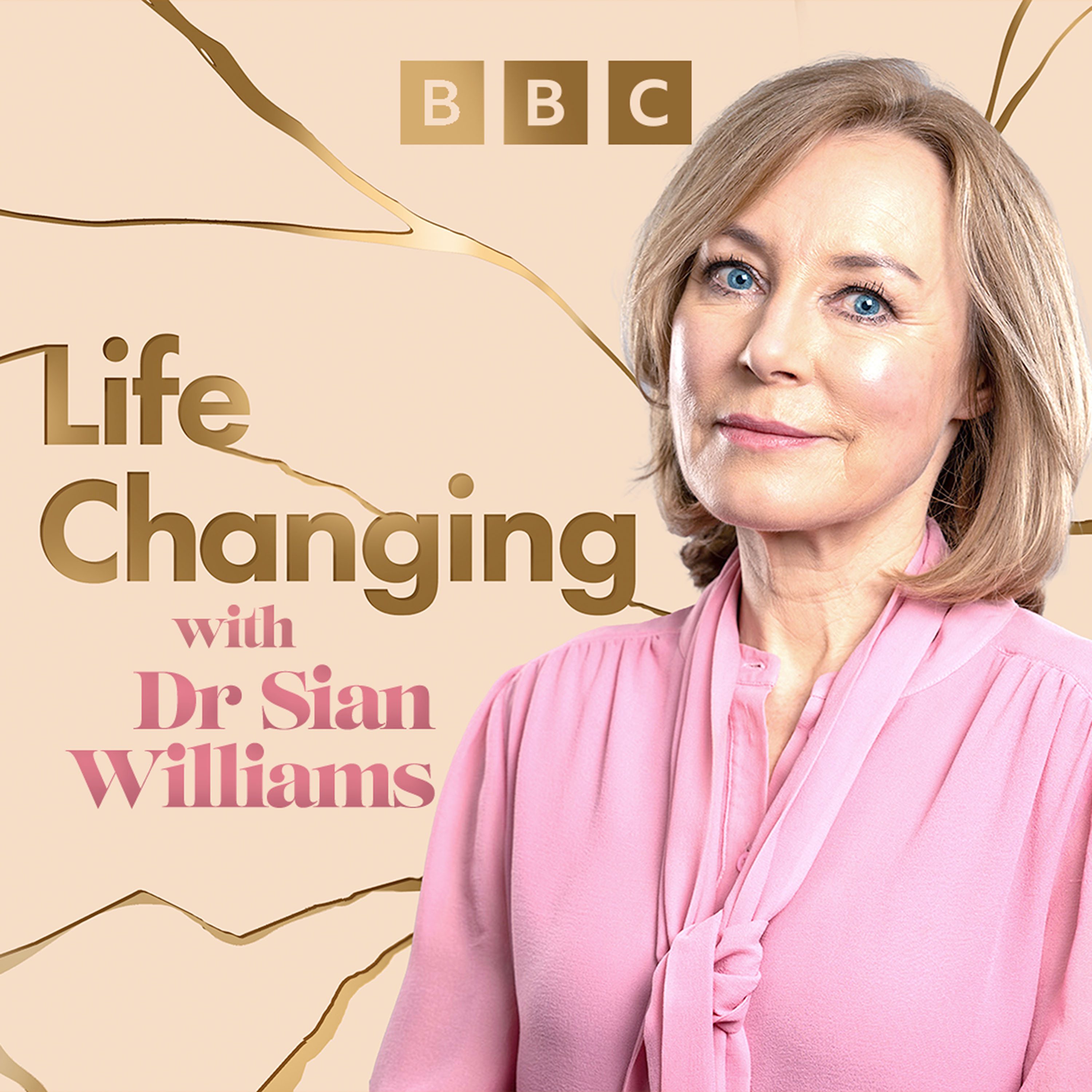
Life Changing
BBC Radio 4
Tech Life
BBC World Service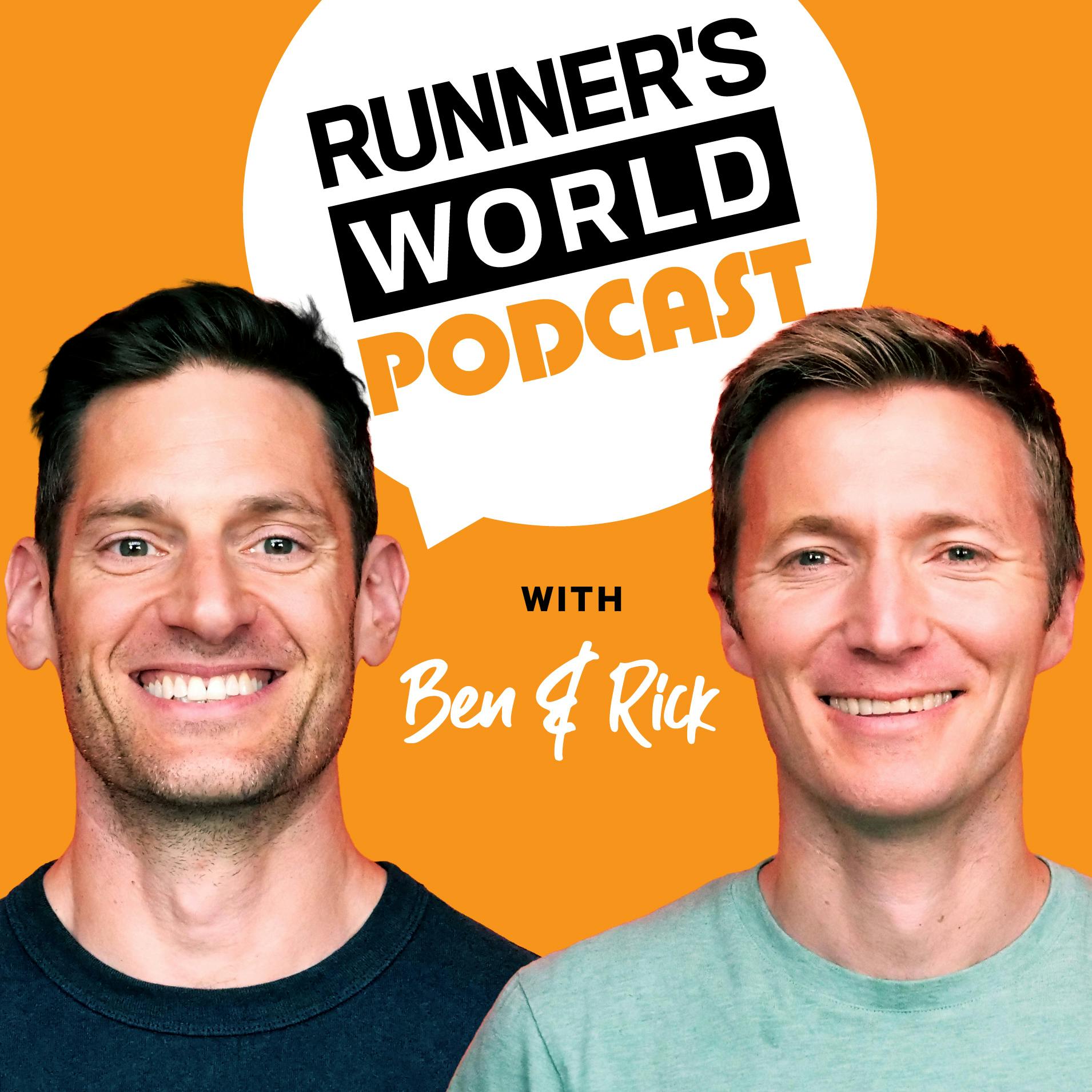
Runner's World Podcast
Runner's World UK
Buzzcast
Buzzsprout
Newscast
BBC News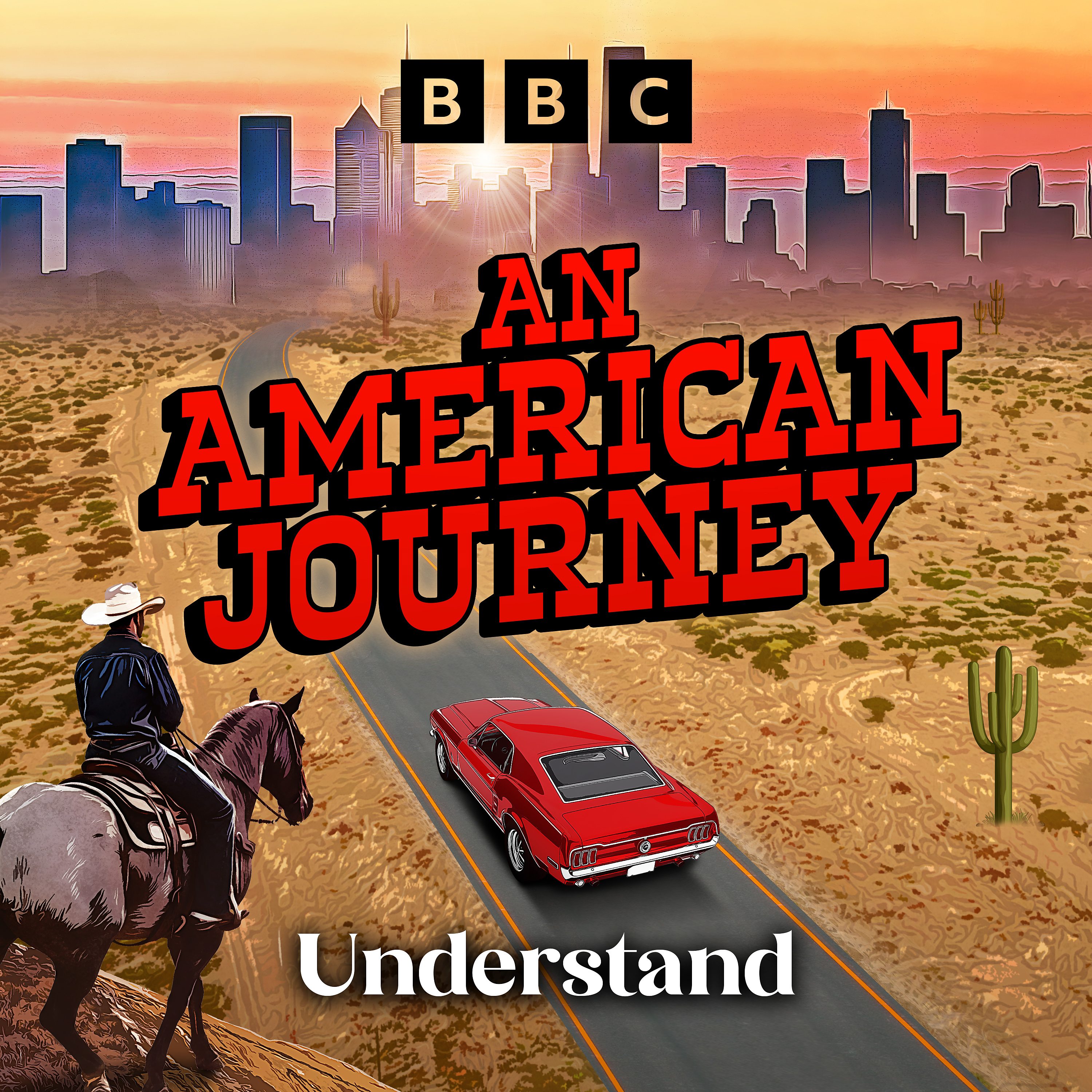
Understand
BBC Radio 4
Cyber Hack
BBC World Service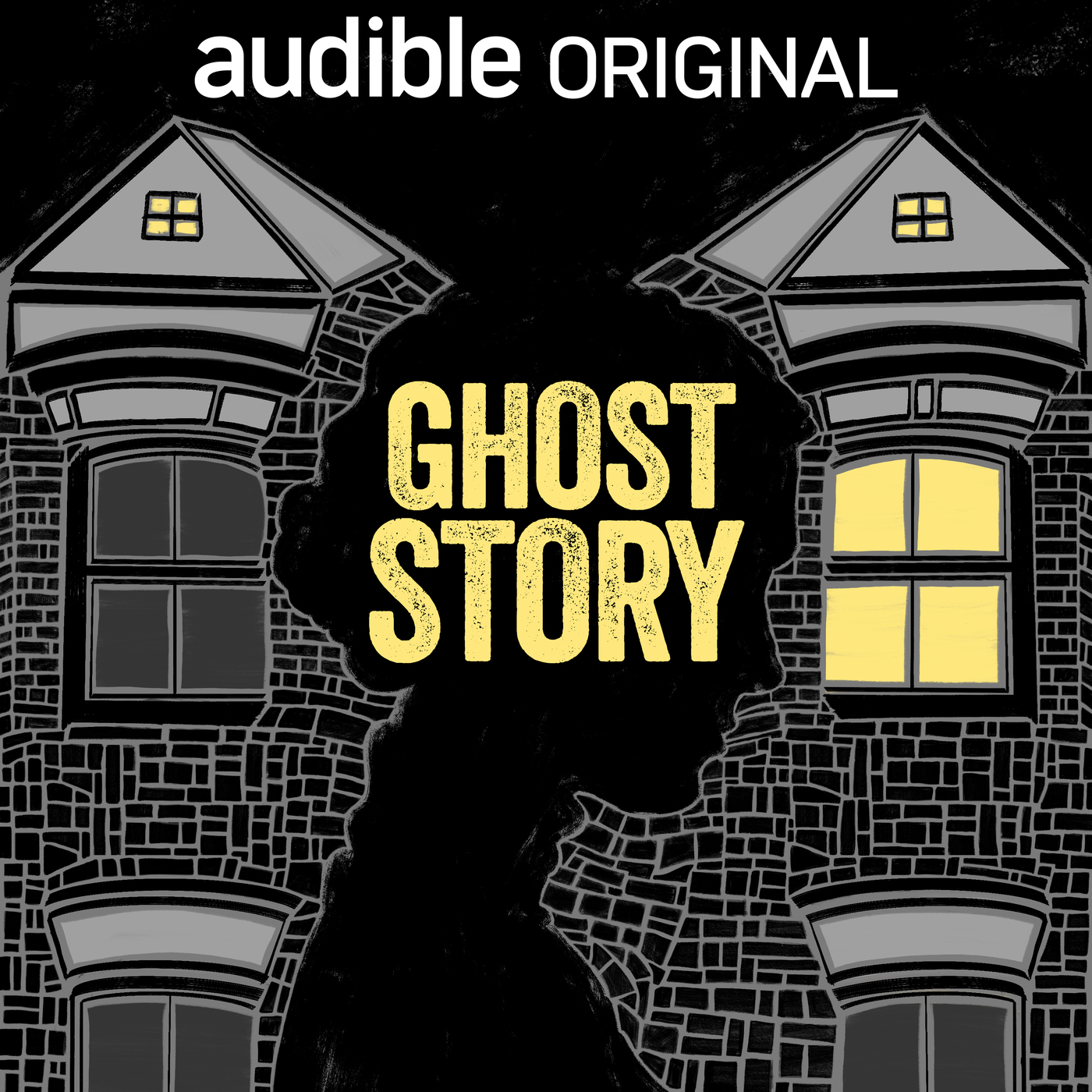
Ghost Story
Audible| Pineapple Street StudiosDiz Runs Radio: Running, Life, & Everything In Between
Join Denny Krahe, AKA Diz, as he talks with a variety of runners about running, life, and everything in between.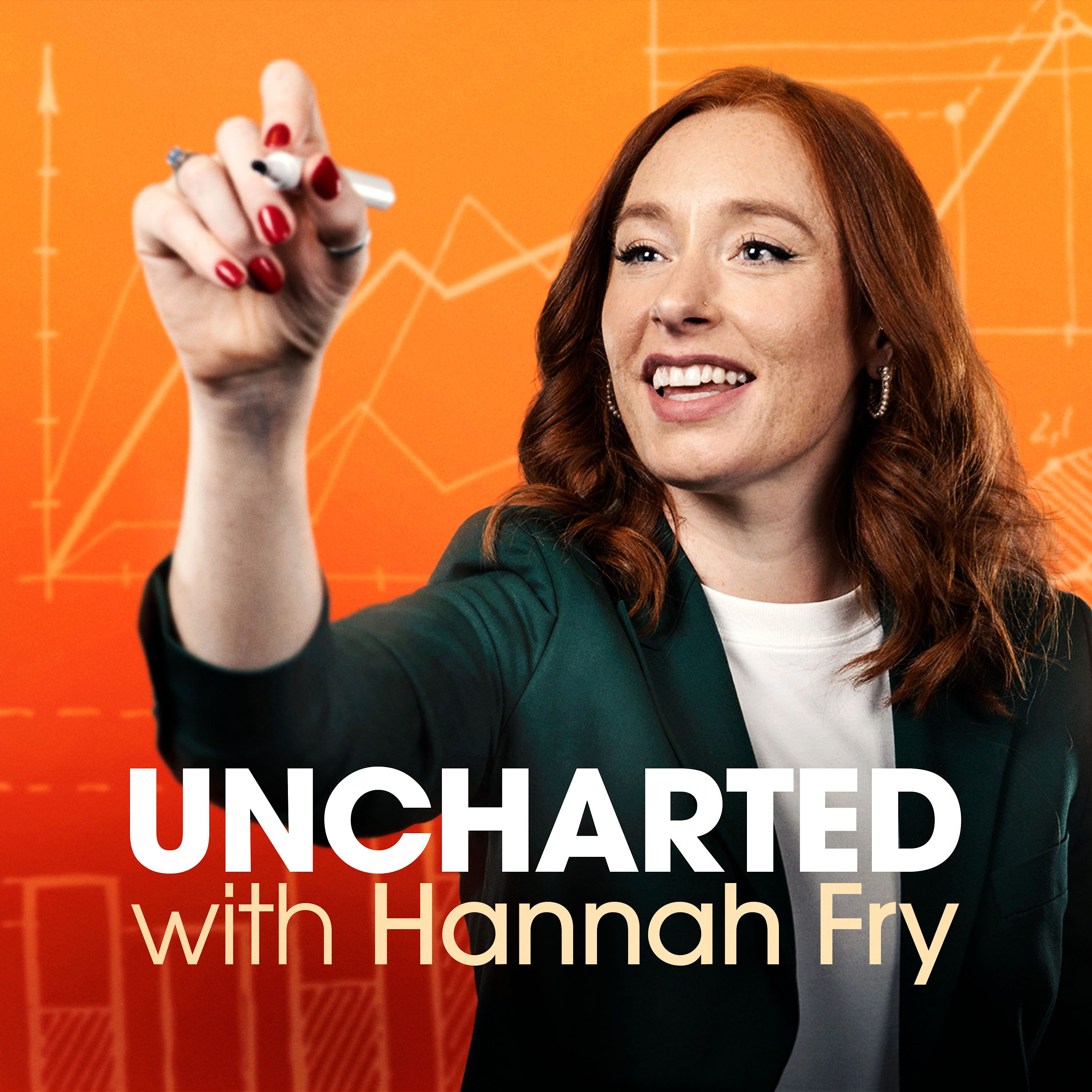
Uncharted with Hannah Fry
BBC Radio 4
The Global Story
BBC World Service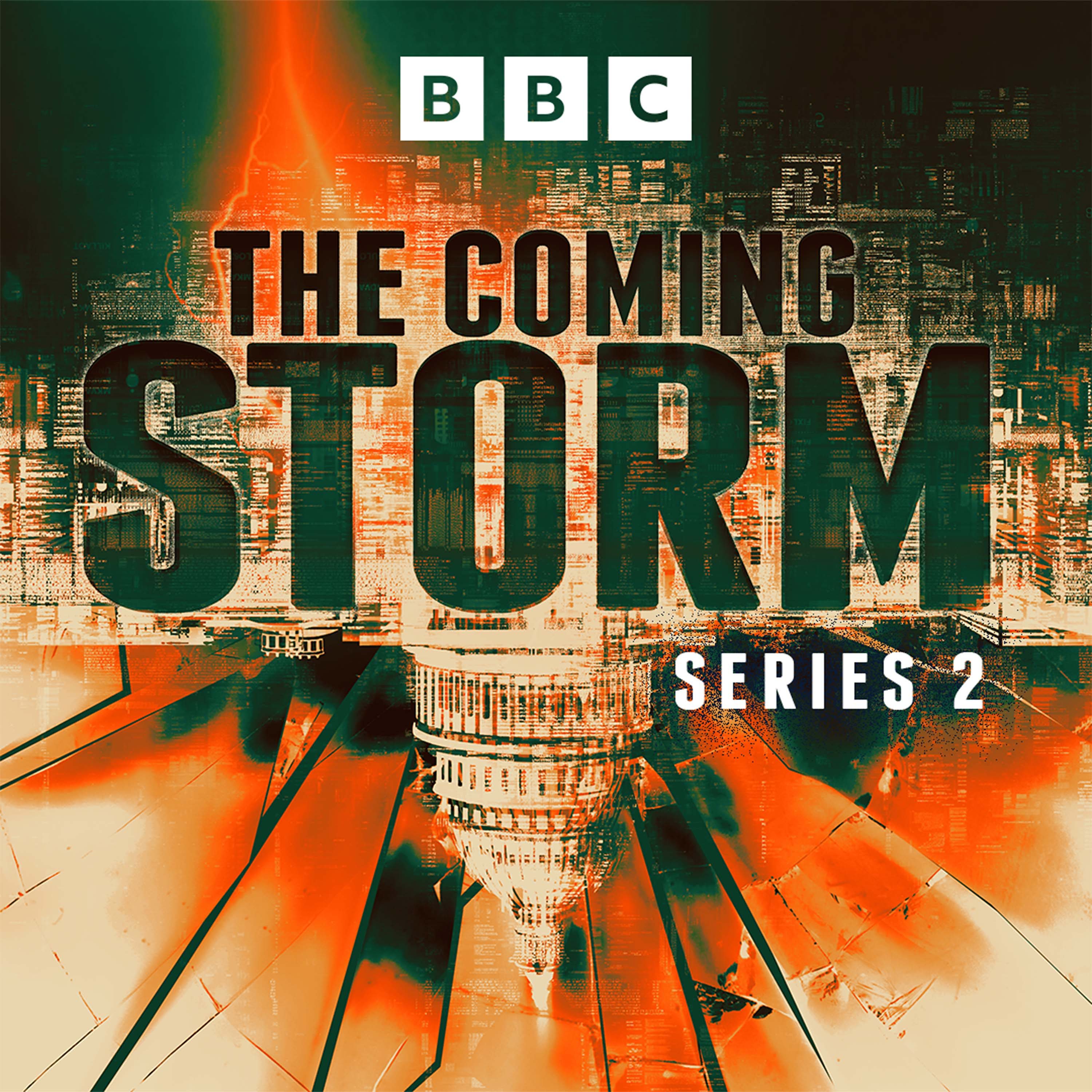
The Coming Storm
BBC Radio 4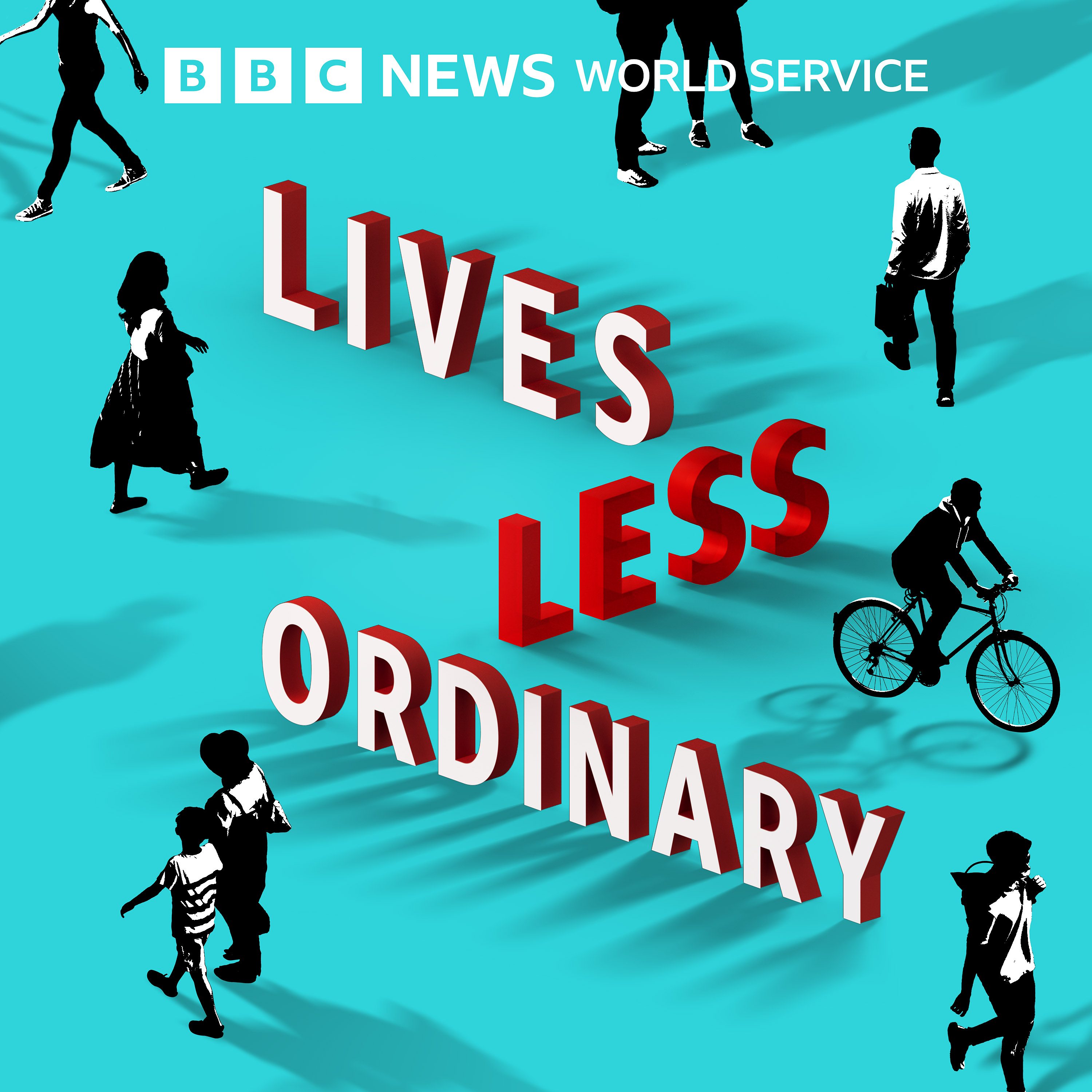
Lives Less Ordinary
BBC World Service
Do Epic Shit Today Podcast
Hannah Mulhern
The Rest Is History
Goalhanger
